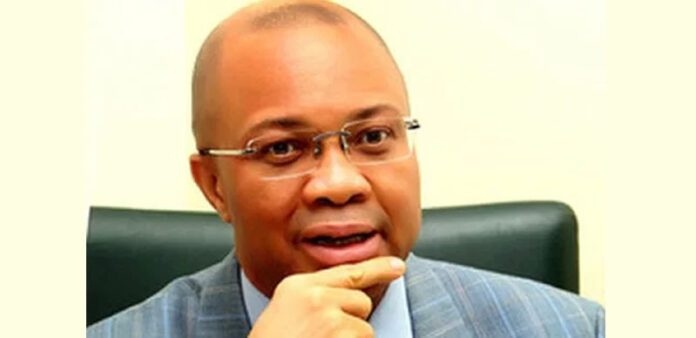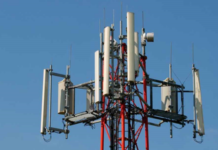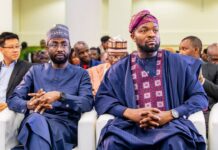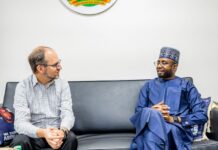Akabueze: Why Insist On Punishing Citizens With Telecom Tax
By Fom Gyem
TECHDIGEST – I watch with interest an Arise Television interview where the Director General Budget Office, Ben Akabueze disclosed that the suspension of the proposed excise duty on players in the digital economy would worsen Nigeria’s revenue problems and could lead to increased borrowing.
His reaction came after the Minister of Communications and Digital Economy, Professor Isa Pantami had announced that the suspension of the proposed five per cent excise duty on telecommunications companies by the Federal Government because of apprehension it could upset the recorded progress in the information and communication technology (ICT) sector apart from affecting the poor masses.
Akabueze said that the proposed duty was embedded in the Finance Act of 2020 as a way of widening the Federal Government’s revenue base. He even claimed that he was unaware of any suspension of the proposed duty. He, therefore, warned that its reversal would adversely impact projected revenue for, and deficit in the 2023 budget, and negatively affect the budget’s general implementation.
Meanwhile, the Nigerian telecommunications industry has developed into an oligopolistic market structure. It is impossible to overstate the value of telecom airtime and data in the complex environment we live in today. Nigerians continue to suffer excruciating pain as a result of the aggressive taxation of the country’s telecom industry, which has caused network quality to deteriorate.
Telecom services such as broadband have become a necessity and without them, nothing could be done in various sectors. As such, introducing the excise duty would not be beneficial to Nigerians as the economy isn’t friendly.
Both the vulnerable poor and well-to-do Nigerians are severely taxed and pay a lot of it. The Vulnerable group in Nigeria comprises those citizens who don’t have the money and do not have the means to generate or earn income. This must be the main reason behind the general public’s opposition to the latest proposal for an additional 5 percent telecoms tax.
Consumers’ primary access point to the Internet today in many parts of the world, particularly in developing nations, is through mobile, a division of the telecoms business. Despite this, governments in many of these nations are increasingly levying sector-specific taxes on mobile service and device users as well as mobile carriers in addition to general taxes.
The widespread acceptance of the social and economic benefits connected with the telecommunications sector is believed to be limited by this, which poses a serious risk to the growth of the services among citizens.
The 5 percent excise charge will be another burden, especially for the vulnerable group of Nigerians that are barely trying to make a living by diverting into selling their products online on WhatsApp and other platforms. Nigerians can barely afford monthly subscriptions of data and nowadays data bundles don’t take us through the whole month. If the tax is now imposed how will a common man who is trying to move his business to the digital space survive?
Read Also:
Furthermore, students will be affected by the telecom tax, because online classes have become the norm ever since the COVID-19 lockdown. With the unending ASUU strike, most students register for online classes for academic and vocational programmes. Should government impose this tax, students will barely be able to afford data subscriptions for classes and other activities. The average Nigerian trying to see his child through school will find it difficult to afford data rates. Already the cost of living is beyond the reach of millions of Nigerians. Life is hard already, so why impose more hardship on the hapless citizens?
Many Nigerians are of the view that the Nigeria National Broadband Plan (NNBP 2020–2025), which is targeting 70 percent broadband penetration and 90 percent population coverage, will be in jeopardy. The causes are crystal clear. As stated in the NNBP, the Nigerian Communication Commission (NCC) intends to drive down the cost of data to N390 per gigabyte by 2025; hence, any new taxes imposed on telecom carriers imply that the cost of calls, data, and SMS would increase.
Stakeholders also feel that the levy could hinder technology, particularly the ability of subscribers to buy 5G-enabled devices, given that the planned deployment of 5G in the nation is currently at its most advanced stage.
In the midst of this raging issue, Nigerians have risen to applaud the Minister of Communications and Digital Communications, Prof. Isa Pantami, for standing on the side of the masses by speaking out against any attempt by agents of the government to further inflict hard life on citizens by the imposition of a new telecom tax.
Chief Deolu Ogunbanjo, president of the National Association of Telecoms Subscribers (NATCOMS), commended Pantami for protecting telecom subscribers in the case of the 5 percent excise duty.
“I am happy that our Minister is feeling our pains as subscribers. The five percent excise duty will be an additional burden to the existing burdens in the telecoms sector. We are solidly in support of the minister’s position and we, as telecom subscribers, we will go to any length to stop the planned implementation because it will not be healthy for the telecom sector,” Ogunbanjo said.
Also rejecting the proposed tax, Azeez Amida, the Chief Executive Officer of PanAfrican Towers, noted the detrimental effects of multiple taxes and fees, saying they pose a serious threat to the expansion of the Nigerian telecoms sector.
“There should be a uniform tax system, and the same should apply to fees. Taxes are essential to providing funding for infrastructure; it is important for the growth of any society. But taxing and levying businesses multiple times inhibits growth. This is where regulation is needed to streamline the tax system and other fees for tower companies.”
The proposed 5 percent excise charge on telecom services was challenged by Prof. Pantami, who seemed to detest the concept and maintain that it would harm the development of telecoms in Nigeria.
Speaking at an event In Lagos, Pantami pledged to use all legal means at his disposal to resist the proposed 5 percent excise duty on the telecoms industry operators. He criticized the timing and method of taxation of the industry, stating that it is part of the duty of a responsive government not to exacerbate citizens’ concerns.
Doesn’t it sound moral just when the government has less than a year to leave the office to now start bedevilling the poor masses with punishing parting gifts? Could it be an indirect political gimmick to empower the opposition with campaign tools against Buhari and the government of All Progressives Congress (APC) towards the 2023 elections?
Nigerians are waiting to see how the government is going to resolve this telecom tax confusion, especially given the harsh economic realities of today.
Fom Gyem writes from Wuye District, Abuja



















